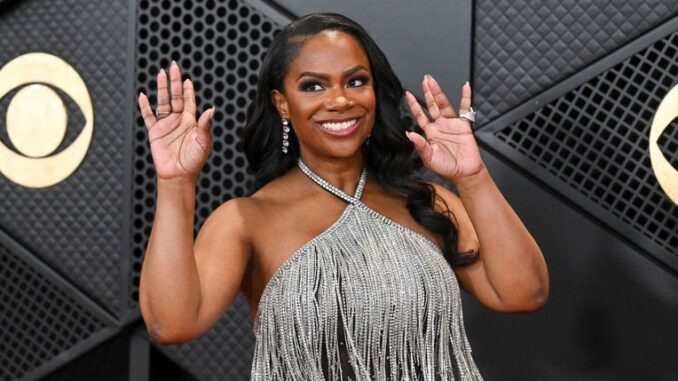
The Unfurling Sail: Why Kandi Walked Away from Real Housewives After All These Years
Few figures in the sprawling, often chaotic universe of reality television have achieved the kind of steadfast, ubiquitous presence that Kandi Burruss maintained on The Real Housewives of Atlanta. For an astonishing fifteen years, she was an immovable anchor, a familiar face in a rotating cast, witnessing seismic shifts in pop culture, personal lives, and the very fabric of the Bravo network. Her departure, therefore, was not merely the end of a contract; it was the closing of an epoch, a quiet, deliberate unfurling of sails from a harbor she had long helped define. To understand why Kandi finally walked away is to trace the arc of a woman who transformed a reality show platform into a launchpad, a crucible, and ultimately, a gilded cage she had simply outgrown.
From her initial seasons, Kandi was the relatable, no-nonsense "cool aunt" of the group, a Grammy-winning songwriter with an earthy charm and a keen business mind. The show served as an incredible incubator for her burgeoning empire. We watched as she launched Bedroom Kandi, Old Lady Gang restaurants, a litany of spin-offs, and theatre productions. The cameras, once an invasive force, became an almost symbiotic extension of her brand-building. She leveraged the visibility, the confessionals, the occasional dramatic skirmish to amplify her projects, her music, her very persona. The Real Housewives became less a job and more a publicly televised business plan, a weekly advertisement for the multifaceted brand of Kandi. But herein lies the first subtle shift: what once served as a ramp, eventually felt like a tether.
As years turned into over a decade, the relationship between Kandi and the show began to invert. She no longer needed the show for exposure; she was the exposure. Her entrepreneurial ecosystem had grown so vast, so self-sustaining, that the demands of reality television began to feel like a distraction, a necessary evil rather than an exciting opportunity. Imagine a multi-billionaire CEO still clocking in daily at a local lemonade stand – while perhaps nostalgic, it eventually ceases to be productive or challenging. Kandi’s empire, spanning music, restaurants, sex toys, and theatre, demanded her full, unadulterated focus. The constant cycle of manufactured drama, the need to share every intimate detail, and the inevitable public scrutiny that comes with it, must have felt like an increasingly burdensome toll on her peace of mind and, ironically, her carefully cultivated brand.
Moreover, the very nature of reality television necessitates conflict, vulnerability, and a willingness to expose the raw edges of one's life. Kandi, over time, became increasingly guarded. Her life, for all its success, settled into a rhythm of stability that isn't always conducive to compelling reality TV. Unlike some castmates who thrive on public feuds or perpetual personal crises, Kandi's drama often felt external, brought to her by others, or recycled from past seasons. Her relationships were largely solid, her finances flourishing, her family life relatively stable. What more authentic vulnerability could she offer without contriving situations or sacrificing her hard-won tranquility? The show, by its very design, needs to be fed new, salacious material, and Kandi had reached a point where supplying it would mean either manufacturing conflict or compromising her hard-won peace. The price of admission, the emotional and reputational toll of living under a constant microscope, likely began to outweigh the benefits of mere visibility.
Finally, there is the undeniable element of narrative fatigue – both for the audience and, one presumes, for Kandi herself. After fifteen years, every stone has been turned, every argument rehashed, every triumph celebrated. Her story had been told, and told again, from countless angles. For an artist and entrepreneur like Kandi, who thrives on creation and innovation, the repetition of reality TV must have become creatively stifling. Stepping away is not a retreat, but a strategic pivot, an act of intentional liberation. It signifies a woman who understands her value, recognizes the finite nature of time, and chooses to allocate her energy towards new challenges, new productions, and a life lived on her own terms, free from the constant glare of cameras and the need to perform for a specific narrative arc.
Kandi Burruss's departure from The Real Housewives of Atlanta is not a sad farewell, but rather a powerful statement. It is the story of a chrysalis shedding its final skin, a ship setting sail for a new, boundless horizon after having mastered the familiar waters. It’s a testament to knowing when your purpose in a particular space has been fulfilled, when the growth it once fostered has peaked, and when the journey simply demands a different path. Kandi walked away not because she failed, but precisely because she succeeded, evolving beyond the very framework that helped make her a household name, charting a course toward an even grander, self-authored narrative.